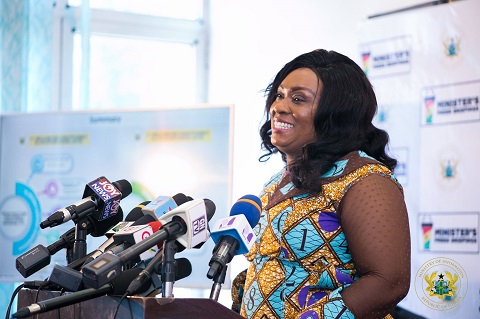Government says it is drafting a new Act aimed at sanitizing the fisheries sector.
The Minister responsible for Fisheries and Aquaculture Development, Mavis Hawa Koomson says the move is to replace the existing Act which expired in 2019.
These new laws and regulations according to the Minister are to check illegal fishing activities along the country’s shores.
“The relevant processes are also ongoing for the drafting of a new Fisheries Act to replace the existing Fisheries Act, 2002 (Act 625) and the development of a new National Fisheries Management Plan to replace the previous plan that expired in 2019.”
The Minister was speaking at the Ministry of Information’s weekly media engagement on Sunday, September 12, 2021.
In addition, the National Fisheries and Aquaculture Policy which was developed in 2002 is also being reviewed.
“All these are to ensure that the management of the fisheries resources meets merging trends in fisheries management and international best practices”, Mavis Hawa Koomson added.
In the meantime, the Ministry said it is collaborating with relevant security agencies through land and sea patrols to ensure that all fishers engaged in illegal, unreported, unregulated fishing activities are arrested.
“We will arrest and prosecute all those who break the laws. As I indicated during my vetting, I will enforce all the laws concerning fishing to ensure that we leave a sustainable and transformed fishing sector for future generations”, the Minister warned.
She added that Ghana’s marine and freshwater bodies are well-endowed with fishery resources, which, if properly managed, will provide a sustainable economic country.
However, the Minister expressed worry that the marine fish catch has experienced a considerable decline over the last few years due to overfishing and overexploitation
“To effectively address the situation, we require the adoption and implementation of sustainable fisheries management, that will ensure the protection and conservation of the fisheries resources for the benefit of both present and future generations. It also requires strict enforcement of the fisheries laws and sensitization of fishing communities.”















